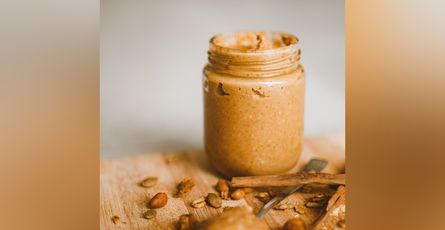Superfoods High in Magnesium That Could Be Worth Considering
-
 Sofia Cruz
Sofia Cruz
- 6 July 2023

Let’s start off with what Magnesium is and why it’s SO important. To be honest, I wish I knew this sooner.
Magnesium is a mineral that is essential for the proper functioning of the human body. It is involved in many biochemical processes, including energy production, protein synthesis, and muscle and nerve function. Magnesium also plays a role in regulating blood sugar levels and blood pressure.
Despite its importance, many people do not consume enough magnesium in their diets. In fact, research suggests that up to 50% of people in the United States and Europe may not be getting enough magnesium from their diets.
Low magnesium levels have been linked to a number of health problems, including high blood pressure, type 2 diabetes, and osteoporosis. In addition, magnesium deficiency can cause symptoms such as muscle cramps, fatigue, and irritability.
Therefore, it’s crucial to ensure that you are getting enough magnesium in your diet. One way to do this is by incorporating magnesium-rich superfoods into your meals.
Magnesium is an essential mineral that plays a crucial role in many bodily functions. It helps maintain healthy bones, regulates blood sugar levels, and supports the nervous system. While magnesium can be obtained through supplements, it’s always better to get it from natural sources. Here are some of the top superfoods high in magnesium:
| Food | Magnesium Content (per 100 grams) |
|---|---|
| Pumpkin seeds | 534 mg |
| Almonds | 270 mg |
| Spinach | 79 mg |
| Avocado | 29 mg |
| Banana | 27 mg |
Pumpkin seeds are the richest source of magnesium, with 534 mg per 100 grams. They are also high in protein, healthy fats, and other minerals. Almonds are another great source of magnesium, with 270 mg per 100 grams. They are also rich in vitamin E, fiber, and protein.
Spinach is a leafy green that’s packed with nutrients, including magnesium. It contains 79 mg of magnesium per 100 grams, along with other vitamins and minerals. Avocado is a unique fruit that’s high in healthy fats and fiber. It also contains 29 mg of magnesium per 100 grams. Bananas are a popular fruit that’s rich in potassium and other nutrients. They also contain 27 mg of magnesium per 100 grams.
Other superfoods high in magnesium include dark chocolate, black beans, quinoa, and tofu. Incorporating these foods into your diet can help ensure that you’re getting enough magnesium to support your overall health and well-being.
How to Incorporate Magnesium-Rich Superfoods into Your Diet
There are many ways to incorporate magnesium-rich superfoods into your diet. Here are some tips:
- Snack on nuts and seeds like almonds, cashews, pumpkin seeds, and sunflower seeds.
- Add leafy greens to your salads, smoothies, and stir-fries. Spinach, kale, and Swiss chard are all great options.
- Enjoy fiber-rich whole grains like brown rice, quinoa, and oats.
- Include legumes like black beans, chickpeas, and lentils in your meals.
- Have low-fat dairy products like yogurt and milk as a snack or part of a meal.
- Indulge in dark chocolate, which is not only a good source of magnesium but also contains antioxidants.
- Snack on fruits like bananas, avocados, and figs, which are all high in magnesium.
- Include vegetables like broccoli, sweet potatoes, and artichokes in your meals.
It’s important to note that while incorporating magnesium-rich superfoods into your diet is a great way to boost your magnesium intake, it’s not the only way. If you’re concerned about your magnesium levels, talk to your healthcare provider about whether a magnesium supplement might be right for you.
Potential Risks of Consuming Too Much Magnesium
While magnesium is an essential mineral for the human body, consuming too much of it can have negative effects on your health. Here are some potential risks associated with consuming too much magnesium:
- Diarrhea: Consuming too much magnesium can cause diarrhea, which can lead to dehydration and electrolyte imbalances.
- Stomach cramps: Overconsumption of magnesium can also cause stomach cramps and nausea.
- Low blood pressure: In some cases, consuming too much magnesium can cause a drop in blood pressure.
- Irregular heartbeat: High levels of magnesium in the blood can cause an irregular heartbeat, which can be dangerous for people with heart conditions.
- Calcium deficiency: Consuming too much magnesium can interfere with the absorption of calcium, which is another essential mineral for the body.
It’s important to note that these risks are associated with consuming very high levels of magnesium, typically from supplements rather than food sources. Most people can safely consume magnesium-rich foods without experiencing any negative effects. However, if you are considering taking a magnesium supplement, it’s important to talk to your doctor first to determine if it’s necessary and safe for you.
Last Thougths
Getting enough magnesium is essential for overall health and wellness. Fortunately, there are many superfoods that are rich in this important mineral. Leafy greens, nuts, seeds, and whole grains are all excellent sources of magnesium.
Incorporating these foods into your diet can help you meet your daily magnesium needs. However, it’s important to note that some people may need to supplement with magnesium to reach optimal levels. If you’re concerned about your magnesium intake, speak to your healthcare provider about whether a supplement is right for you.
Remember, while magnesium is an important nutrient, it’s just one piece of the puzzle when it comes to a healthy diet. Eating a variety of nutrient-rich foods is key to overall health and wellness.


